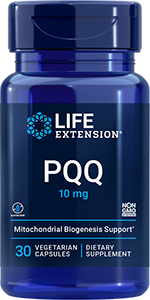|
Tuesday, July 7, 2015. The July 2015 issue of Cancer Prevention Research reports the finding of a randomized, placebo-controlled trial of overweight postmenopausal women which uncovered a reduction in inflammation in response to weight loss and supplementation with vitamin D.
Participants in the study, whose serum 25-hydroxyvitamin D levels were lower than 32 nanograms per milliliter (ng/mL) upon enrollment, were assigned to a five-day-per-week exercise program combined with a low calorie diet supplemented with 2,000 international units (IU) vitamin D per day or a placebo for one year. Blood samples collected at the beginning and end of the study were assessed for markers of inflammation and other factors.
At the trial's conclusion, women who received the vitamin had an average increase in serum vitamin D of 13.6 ng/mL while those who received a placebo experienced a decline. Although changes in body mass index and other factors were similar between the groups, among those who lost 5% to 10% of their weight, the decline in the inflammatory cytokine interleukin-6 was significantly lower among those who received vitamin D compared to those who received a placebo. "We know from our previous studies that by losing weight, people can reduce their overall levels of inflammation, and there is some evidence suggesting that taking vitamin D supplements can have a similar effect if one has insufficient levels of the nutrient," stated lead author Catherine Duggan, PhD, who is a principal staff scientist at the Public Health Sciences Division of Fred Hutchinson Cancer Research Center. "It's the first study to test whether adding vitamin D augments the considerable effect of weight loss on inflammatory biomarkers," she announced.
"We were quite surprised to see that vitamin D had an effect on an inflammation biomarker only among women who lost at least 5 percent of their baseline weight," Dr Duggan remarked. "That suggests vitamin D can augment the effect of weight loss on inflammation."
"It is thought that this state of chronic inflammation is pro-tumorigenic, that is, it encourages the growth of cancer cells," she added. "Weight loss reduces inflammation, and thus represents another mechanism for reducing cancer risk. If ensuring that vitamin D levels are replete, or at an optimum level, can decrease inflammation over and above that of weight loss alone, that can be an important addition to the tools people can use to reduce their cancer risk."
|
|







